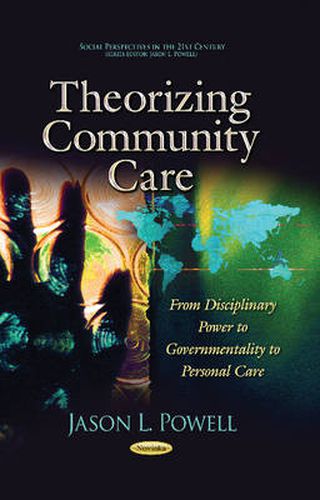Readings Newsletter
Become a Readings Member to make your shopping experience even easier.
Sign in or sign up for free!
You’re not far away from qualifying for FREE standard shipping within Australia
You’ve qualified for FREE standard shipping within Australia
The cart is loading…






As we enter 2014, an accelerating interest in abuse has arisen due to the implementation of community care policies relying upon informal care and a relentless political campaign to legitimise an enforced obligation to care. The use of care management technologies that focus on assessment and inspection, can, in this policy climate, become a means of surveillance and enforcement of informal caring. It is argued that Michel Foucault offers a set of strategies (Foucault 1977: 205) for understanding how the discourses on community care construct older people’s experiences and their identities, as constructed subjects and objects of managerial knowledge. This book examines this and the dystopian implications for older people. The book attempts to move beyond such fatalism by introducing governmentality and the possibilities through social policy for older people. Finally, the book examines the emergence of personal care and the implications for personalization and tailored care services for older people.
$9.00 standard shipping within Australia
FREE standard shipping within Australia for orders over $100.00
Express & International shipping calculated at checkout
As we enter 2014, an accelerating interest in abuse has arisen due to the implementation of community care policies relying upon informal care and a relentless political campaign to legitimise an enforced obligation to care. The use of care management technologies that focus on assessment and inspection, can, in this policy climate, become a means of surveillance and enforcement of informal caring. It is argued that Michel Foucault offers a set of strategies (Foucault 1977: 205) for understanding how the discourses on community care construct older people’s experiences and their identities, as constructed subjects and objects of managerial knowledge. This book examines this and the dystopian implications for older people. The book attempts to move beyond such fatalism by introducing governmentality and the possibilities through social policy for older people. Finally, the book examines the emergence of personal care and the implications for personalization and tailored care services for older people.